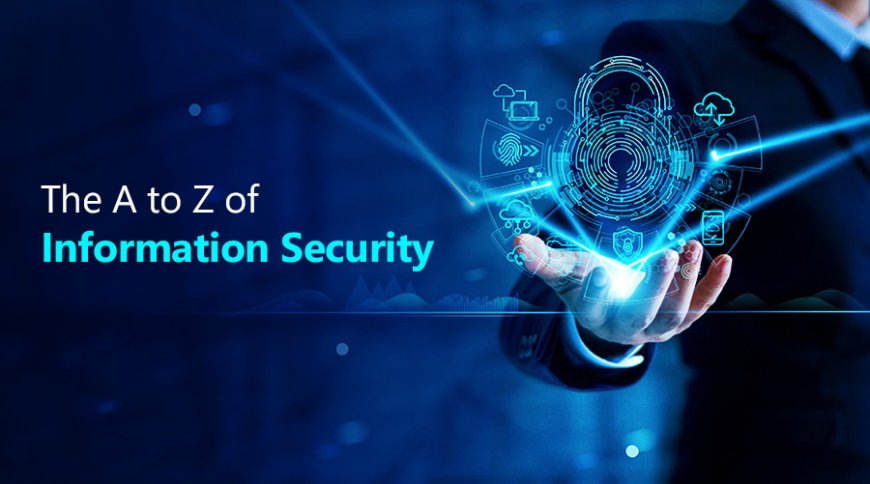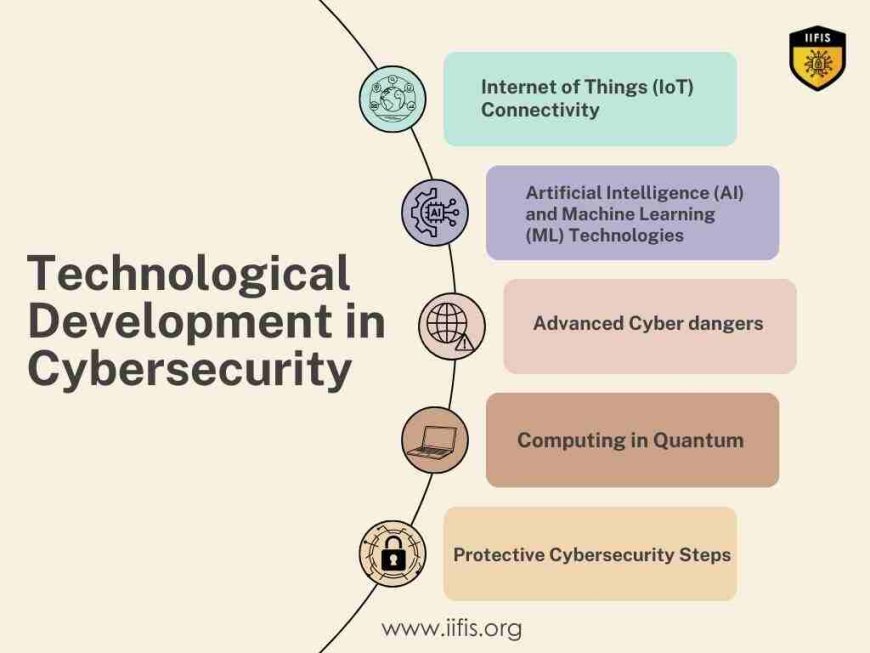Updates and Trends in Information Security Certification
Information Security Certification updates and trends include focusing on cloud security, continuous learning, and integrating AI to enhance protection.

Information security certification is important. These certifications provide definitive proof of a person's or an organization's skills and commitment to protecting confidential data from online attacks. Professionals show that they know how to implement, manage, and maintain strong security measures by earning information security certifications.
Improving confidence and authority is an important part of information security certification. Companies and individuals both are growing more concerned about the security of their information in a period where cyberattacks and data breaches are common. A company's ability to handle sensitive data securely is bolstered by certification, which reassures stakeholders that it has the know-how and abilities to fend off possible dangers.
A systematic framework for checking and verifying security processes is offered by information security certification. It creates a standard set of best practices and rules that professionals can follow, guaranteeing dependability and consistency in security deployments across various industries and companies.
The quick technological development and their impact on cybersecurity methods.
Internet of Things (IoT) Connectivity:
-
A large network of data exchange has been formed by the rise of connected devices.
-
even useful, this connection also creates new weaknesses that hackers might take advantage of.
Artificial Intelligence (AI) and Machine Learning (ML) Technologies:
-
Cybersecurity methods have been transformed by AI and ML technology.
-
Real-time data analysis allows them to identify and address dangers faster.
-
Systems driven by AI can change and change which makes them more effective in fending off cyberattacks.
Advanced Cyber dangers:
-
Hackers use automation and AI to launch more focused attacks.
-
The efficacy of conventional cybersecurity solutions in the face of these changing dangers might drop.
Computing in Quantum:
-
Although quantum computing challenges existing methods of security, it promises never-before-seen processing power.
-
To protect sensitive data, quantum-resistant encryption techniques are required.
Protective Cybersecurity Steps:
-
To defend against fresh dangers, businesses need to invest in strong cybersecurity solutions.
-
To build a safer digital future and manage the constantly changing cybersecurity environment, proactive approaches are required.
The importance of cybersecurity is growing as technology advances. Although connected devices are convenient, there are dangers related to them as well. But with AI and ML developing at a fast rate, investing in cybersecurity solutions and taking preventative actions is necessary for a safer digital environment.

What are the current trends in information security certification?
-
Cloud Security Certifications: The growing demand for professionals with expertise in information technology security is reflected in the increase in demand for certifications such as Cloud Security Alliance (CSA) and Certified Cloud Security Professional (CCSP).
-
Data Privacy and Compliance Certifications: The importance of handling and security of private information by laws like the Consumer Consumer Protection Act and the General Data Protection Regulation has increased in the popularity of certifications like the Certified Information Privacy Professional (CIPP) and Certified Information Privacy Manager (CIPM).
-
Ethical Hacking Certifications: As cyber-attacks become more complex, there is a growing need for qualifications that offer knowledge of finding and managing weaknesses in systems, such as the Certified Ethical Hacker (CEH) and the Official Security Certified Professional (OSCP).
-
Incident Response and Security Identification Certifications: As companies promote active cybersecurity regulations focusing on discovering, evaluating, and efficiently responding to security incidents, certifications like the Certified Incident Handler (ECIH) and Certified Threat Intelligence Analyst (CTIA) are becoming increasingly popular.
All things considered, these patterns show how the cybersecurity field is changing, and certifications are becoming an important resource for people looking to advance their knowledge and meet the range of dangers they face.
Advantages of Information Security Certification
-
Improved Skillset:
Certification programs offer thorough instruction on a range of information security topics, giving students the know-how and abilities necessary to protect digital assets and lessen cyber threats.
-
Professional Advancement:
Possessing a valid certification might improve one's chances of getting a job and moving up on the job ladder. Employers frequently give candidates who have suitable credentials an advantage because they show a commitment to permanent learning and professional growth.
-
Credibility and Trust:
Obtaining certification attests to one's knowledge of and skill with information security procedures, which improves one's reputation and fosters confidence among coworkers, clients, and employers. It provides verifiable evidence of one's proficiency in protecting private data and minimizing online dangers.
-
Global Recognition:
Many information security certificates are accepted throughout the world, giving professionals the possibility and reputation outside of their local or regional markets. This widespread reputation may lead to job opportunities in a range of businesses and locations.
-
Stay Updated:
Information security certification holders usually need to undergo retraining and continuing education to keep their credentials current. This guarantees that experts in the always-changing field of cybersecurity remain up to date on the newest developments, practices, and technologies.
-
Networking Opportunities:
Professionals in the information security field can be accessed through certification programs. Developing a network of peers, mentors, and experts can help with knowledge exchange, teamwork, and professional development.
-
Higher Earning Potential:
Information security specialists who hold certifications typically earn more money than those who do not. Certifications show certain knowledge and abilities that employers value, which may result in higher earning potential.
All things considered, obtaining an information security certification gives professionals the chance to improve their abilities, reputation, and job chances in a fast-expanding and exciting profession.
Uses of Information Security
Data Protection: Data is protected by information security, which stops unwanted access and changes, maintaining availability, confidentiality, and security.
Risk Management: It efficiently detects and removes possible threats, allowing enterprises to set security priorities and reduce risks.
Compliance: By providing compliance with regulations such as GDPR and HIPAA, information security lowers the legal risks related to data protection.
Business continuity: It minimizes operational disruptions by preserving company continuity through the mitigation of security issues.
Trust and Reputation: Information security gives stakeholders more confidence and a better reputation, giving businesses a competitive edge and promoting respect.
Innovation Enablement: It minimizes related dangers and fosters creativity by providing a safe environment for technology developments.
Professionals and companies need to be certified in information security in light of the constantly changing nature of cyberattacks. Certifications promote authority and confidence by attesting to a person's abilities and dedication. They address topics like cloud security and ethical hacking while developing standard security standards. Global recognition, improved skill sets, and professional prospects are among the benefits. Professionals can stay up-to-date and network with ease thanks to certifications. In the end, they enable people to successfully handle cybersecurity issues, making the internet a safer place. By gaining a certification in information security, workers may better address the ever-changing cybersecurity environment and help create a safer online environment for both individuals and businesses.























